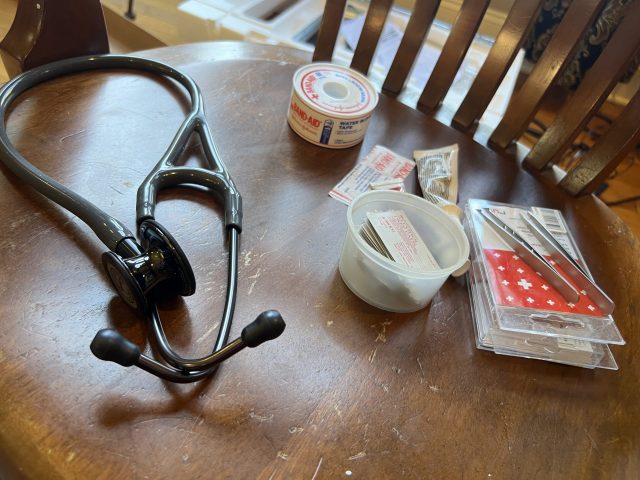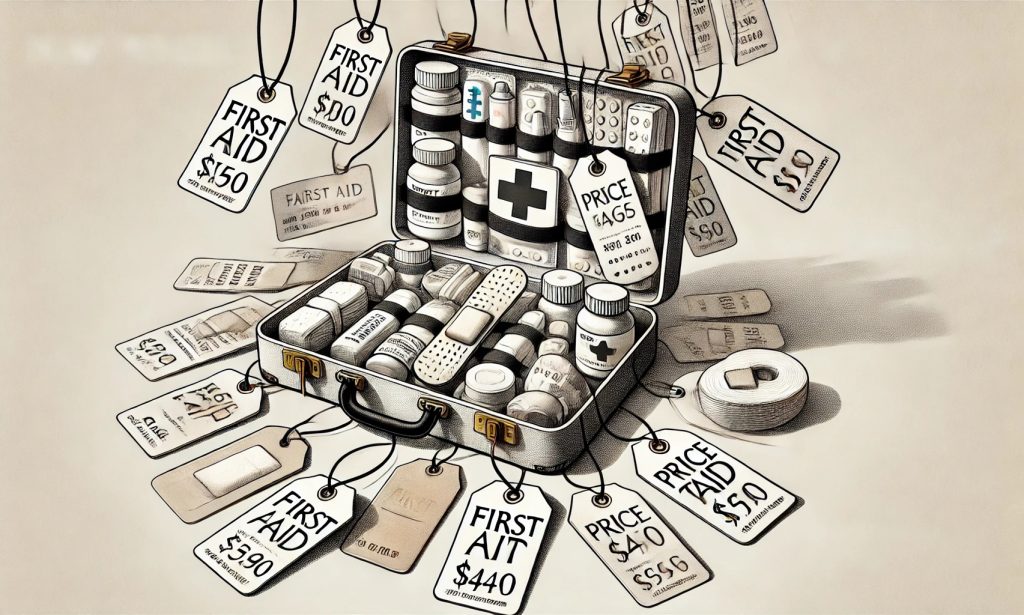Asheville – Even before tourism was severely impacted by Hurricane Helene, healthcare was recognized as the largest economic sector in the Asheville Metropolitan Statistical Area, accounting for up to 20% of all jobs. Fortunately, the healthcare sector in Asheville is somewhat insulated from the challenges faced elsewhere due to a barrage of federal reforms. This sector primarily consists of service providers and allied health professionals, and it lacks a major university hospital or a prominent frontline research lab.
Looming federal actions that could significantly harm the local industry include tariffs. While any impact on major medical equipment may not be felt immediately, non-durable medical supplies are predominantly manufactured in Asia. Approximately 30% of pharmaceuticals are imported from countries such as Ireland, Germany, Switzerland, India, and the Netherlands, and about 30% of active pharmaceutical ingredients used by U.S. drugmakers come from China. Additionally, China is a “major supplier” of vaccines, blood, organic cultures, and organs. On February 4, Rick Pollack, president and CEO of the American Hospital Association, wrote a letter to the president requesting exemptions, particularly for items already in short supply.

Medicaid cuts could also pose a threat. Like Social Security and Medicare, it is an unfunded mandate that is likely to fail without some form of intervention. However, the administration’s chosen intervention is being characterized as unnecessarily catastrophic. On February 25, Congress passed a budget resolution directing the Energy and Commerce Committee to cut $880 billion from its budget over the next ten years. Medicare and Medicaid are the two largest programs overseen by the committee, and it is expected that the cuts would be realized by lowering per capita caps and eliminating the enhanced federal match for states that agreed to Medicare expansion under Obamacare. North Carolina would likely bear a heavier burden to compensate for federal losses than any other state. With increases in state spending estimated at 54% and 64.4%, it ranks 50th and 48th, respectively, according to two models reviewed by the Urban Institute and the Robert Wood Johnson Foundation.
Threatened cuts to National Institutes of Health (NIH) funding have created an international stir. Often regarded as the largest public funder of scientific research, NIH typically receives around $47 billion a year from the federal government. Most of this funding goes to universities, hospitals, and large laboratories for biomedical and behavioral research, much of which has international implications. It can be argued that research into genetic sequencing, cancer cures, and vaccines for ever-mutating viruses is better managed as a natural monopoly rather than left to independent basement scientists. However, viewing science through a political lens creates a hotbed of tensions: Should the work of those who have spent 30 years advancing specialized fields be democratized and require consent from the millions who derive their scientific knowledge from television content designed to captivate advertisers? Should the admirable—if not entirely accurate—reputation scientists have long held for international cooperation now take a backseat to nationalism?
Day-to-day operations at UNC-Asheville were at least shaken by the first round of threatened grant denials. Educational institutions with mandatory DEI programming are now ineligible to receive federal funding. As a liberal arts school, UNC-Asheville is part of the University of North Carolina system, which received $1.4 billion in federal funds for research alone last year. Consequently, DEI coursework is no longer a general education requirement. Schools like AB-Tech that train allied health professionals do not receive NIH grants.
Still, North Carolina ranks among the top five states in per capita NIH funding. In 2024, the NIH awarded over $580 million to Duke University and over $531 million to UNC-Chapel Hill. Cuts would be more substantial at institutions like Johns Hopkins University, which receives $2 billion annually and serves as the hub of a “robust research corridor.” Following the announcement of budget cuts, the NIH suspended its meetings for deliberating grant awards, leading many high-profile universities to freeze graduate admissions or new research hires. Reports of this response were exaggerated; procedural freezes at Johns Hopkins and elsewhere were misinterpreted as reactionary measures. According to *Nature*, the federal government laid off 280,000 scientists and engineers.
In the meantime, a federal judge has issued a temporary restraining order allowing researchers to continue their work for now. Unfortunately, their efforts are now interrupted by rent-seeking behaviors, as researchers divert time and thought into securing funding. Axios reported, “Researchers and administrators are engaging in emergency meetings,” while scientists are seeking more stable employment opportunities.

